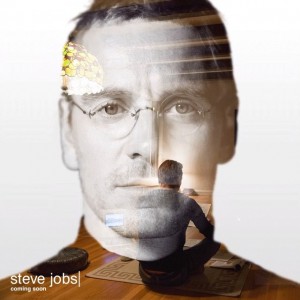‘Steve Jobs’: The most original biopic in years

If you’re not familiar with who Steve Jobs was, it’s likely you at least know that he was the founder of Apple, the company slowly taking over the world one iMac, iPhone and iPad at a time. “Steve Jobs” is unusual in that it is not your typical biopic. It’s not about Jobs’ rise to fame and success throughout multiple years of his life — and yet it is. The film is unusual in that it only takes place during three different moments of Jobs’ life, specifically backstage before three different product launches in 1984, 1988 and 1998.
The film opens on Jobs (Michael Fassbender, “12 Years a Slave”), his assistant Joanna Hoffman (Kate Winslet, “Insurgent”), and Apple team member Andy Hertzfeld (Michael Stuhlbarg, “Blue Jasmine”) trying to fix a problem with the Macintosh they’re about to showcase at a product launch. The film wastes no time getting straight into the action as the characters scramble around and go back and forth at each other as they try to come up with a solution. As soon as the film begins we see what kind of a man Jobs was to work for. Jobs is a jerk, plain and simple, but he doesn’t care. He pushes everyone around and rarely takes others’ feelings into account. Throughout the film we see how this benefits him as a creative genius, as well as how his attitude toward others is his biggest flaw.
“Steve Jobs” presents its title character as a complex man, and makes no attempt to glorify him. We see his truly ugly side as we’re introduced to his little daughter, whom he completely disowns. Jobs’ friendship with Steve Wozniak (Seth Rogen, “Neighbors”) is complicated to say the least; two men who view each other as brothers yet share different views that cause a rift between them. Fassbender plays Jobs in such a way that while we’re drawn to the character, we don’t love him. We’re invested because we want to know how he solved problems and advanced along in his career, but it’s hard to admire him as a person when we see how he treats others. When we get to the end of the story there’s a clear journey that the character has gone through, but it’s sad in that it’s an arduous journey that he seems to have brought upon himself.

By the end of “Steve Jobs,” it’s amazing to think about how the film was written considering we view only three different moments in Jobs’ life in real time. There are occasional flashback scenes, but the majority of the film consists of us following Jobs around backstage as he puts out different fires — personal and professional — before heading onstage to present each new product. There are moments here and there that provide a little too much exposition. For those who were alive during the times of these product launches, the backstory provided through different moments of dialogue may seem like a history recital, but for younger audiences the clarification of what was going on then provides a better understanding of the different stages of Jobs’ life.
Hopefully this film will inspire future biopics to tell their stories in more unique ways. We could have had a couple hours of seeing Jobs throughout the decades during various events in his life, but instead by only focusing on just three events throughout a total of 14 years we see a very specific side of Jobs. Instead of coming off as the “SparkNotes” of the life of Steve Jobs, “Steve Jobs” focuses on a few specific aspects of his life and applies them in limited settings, allowing for a purposefully specific character study on a man who’s had a major influence on modern technology.




















